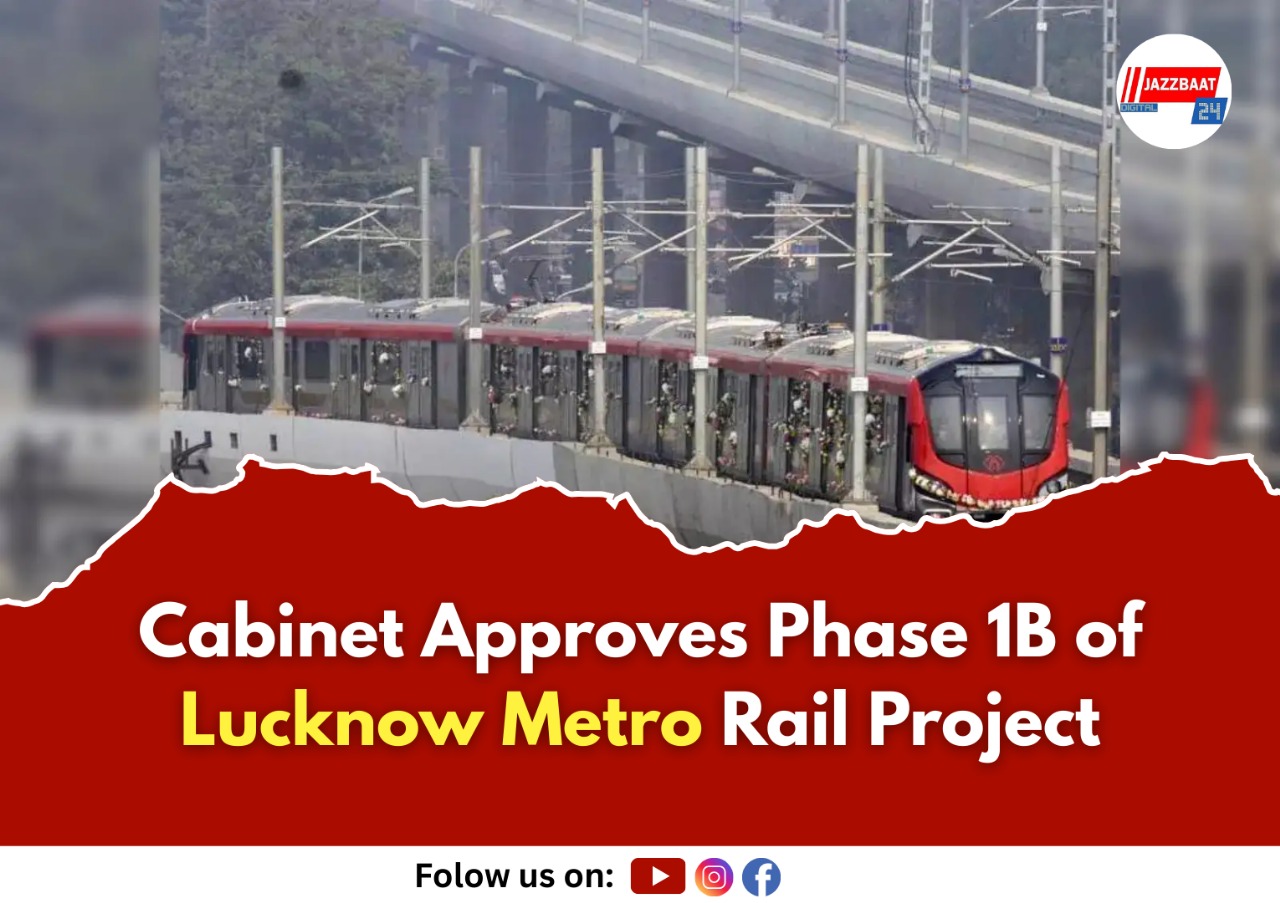
New Delhi: The Union Cabinet, led by Prime Minister Shri Narendra Modi, has approved Phase 1B of the Lucknow Metro Rail Project in Uttar Pradesh. This project will cover a corridor of 11.165 kilometers with 12 stations, including 7 underground and 5 elevated stations, at a total cost of Rs 5,801 crore. Once Phase 1B is operational, Lucknow will have a total of 34 kilometers of active Metro Rail Network.
Phase 1B of the Lucknow Metro Rail Project marks an important step in the city’s infrastructure growth and significantly expands the Metro Rail Network. This phase will introduce about 11.165 kilometers of new metro lines, which will greatly improve public transportation in the oldest and most densely populated areas of the city that currently lack efficient connections.
Phase 1B aims to connect key areas of Old Lucknow. It will link commercial centers like Aminabad, Yahiyaganj, Pandeyganj, and Chowk. It will also connect important healthcare facilities, especially King George’s Medical University (Medical College). Major tourist spots such as Bara Imambara, Chota Imambara, Bhool Bhulaiya, Clock Tower, and Rumi Darwaza will benefit from this connection. Popular dining areas known for the city’s rich food culture will also see improved access.
By linking these vital areas with the metro network, Phase 1B will improve connectivity, boost economic activity and tourism, and ease urban travel for both residents and visitors.
As an efficient alternative to road transport, the metro network in Lucknow is expected to reduce traffic jams. The Phase 1B extension will have a particularly positive effect on the heavily congested routes in Old Lucknow. With less road traffic, vehicle movement will be smoother, travel times will shorten, and road safety will improve.
Phase 1B of the Lucknow Metro Rail Project is poised to be a game-changer for the city. It offers improved connectivity, less traffic congestion, environmental advantages, economic growth, and a better quality of life. By tackling key urban issues and laying the groundwork for future expansion, Phase 1B will be vital in shaping the city’s development and sustainability.